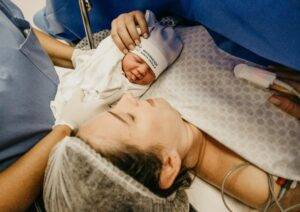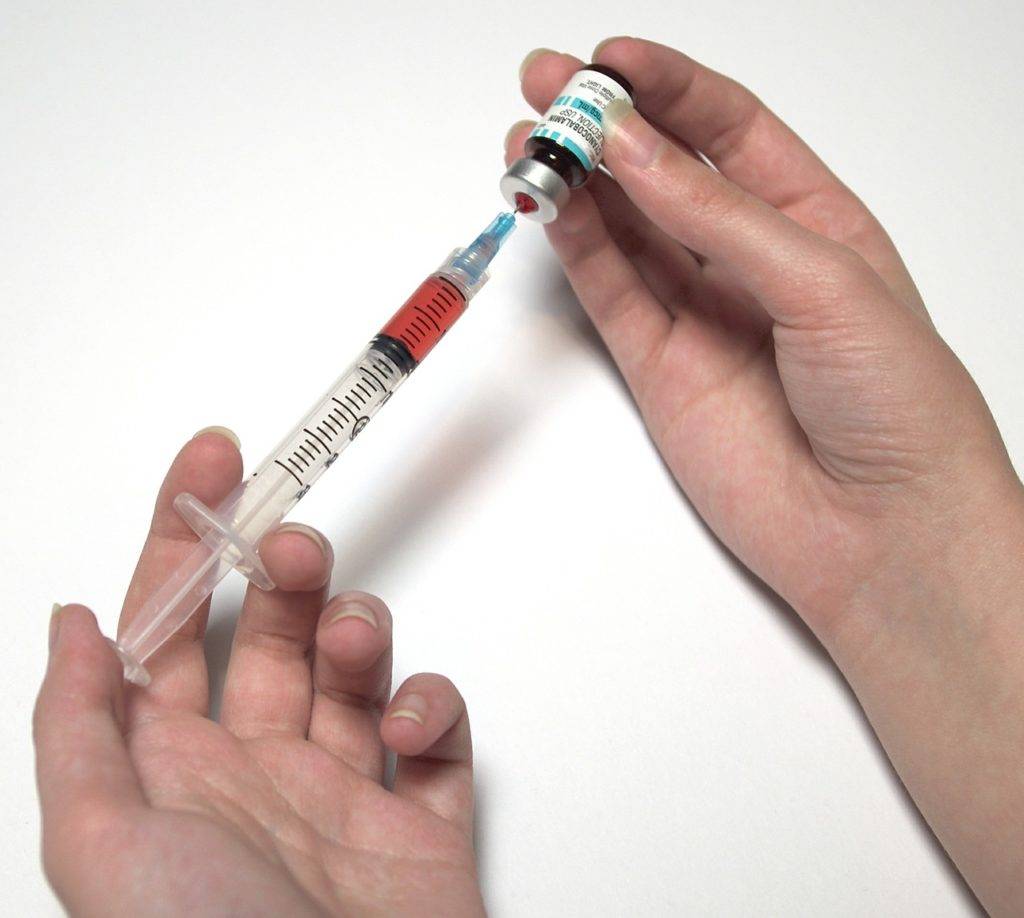 Becoming a parent is overwhelming. You’re suddenly in charge of protecting a tiny human from every danger the world can throw at them. One of the very first, most important protections you can give your newborn is the hepatitis B vaccine at birth. Unluckily, some parents hesitate.
Becoming a parent is overwhelming. You’re suddenly in charge of protecting a tiny human from every danger the world can throw at them. One of the very first, most important protections you can give your newborn is the hepatitis B vaccine at birth. Unluckily, some parents hesitate.
Some parents read online that hepatitis B spreads mostly through sex or drug use, and they wonder, “Why does my newborn need this?” Others see the vaccine schedule revised and assume it means the vaccine is risky.
Here’s the truth: Giving the Hepatitis B vaccine to newborns right at birth isn’t just a recommendation—it’s a life-saving imperative. Skipping it or delaying it opens the door to serious, lifelong consequences.
The hepatitis B vaccine at birth is like buckling your baby into a car seat before you ever pull out of the driveway. You don’t wait until after the accident—you protect first, then go about life.
Below, we at Omega Pediatrics will explain what it is, why a vaccine at birth matters, what the risks of delaying are, and some common objections (and why they fall short). Let’s walk through why.
Hepatitis B: More Common and More Infectious Than You Think
Hepatitis B virus (HBV) is a silent but deadly virus that attacks the liver. It spreads through contact with infected blood and certain body fluids. Mothers who have HBV can pass it to their babies during childbirth. And while it’s true that in adults, transmission is often through sex or shared needles, for kids, it’s different.
Transmission of the hepatitis B virus in kids may be through the following:
- Playground scrapes: Children tumble, bleed, and get into accidents.
- Daycare bites: Toddlers explore with their mouths, and bites can break skin.
- Shared items: Nail clippers, toothbrushes, or even toys with traces of blood.
- Birth itself: A baby born to an infected mom can catch HBV during delivery.
Hepatitis B is 100 times more infectious than HIV and comparable in contagiousness to Ebola or yellow fever. However, unlike those viruses, hepatitis B can remain dormant in the body for decades before presenting symptoms.
How Does Hepatitis B Affect Newborns: The Devastating Consequences
If a baby catches hepatitis B at birth or in early childhood, the risk of developing chronic hepatitis B (long-term infection) is extremely high– 90%. These aren’t “what ifs.” They are well-documented complications that claim hundreds of thousands of lives worldwide every year.
Chronic infection in infancy can lead to serious complications:
- Cirrhosis (severe scarring of the liver)
- Liver cancer (hepatocellular carcinoma) often occurs with cumulative damage over the years
- Liver failure
Why the Birth Dose is So Critical
You wouldn’t strap your baby’s car seat after an accident. You wouldn’t buy fire insurance after the fire. Vaccination is the same principle.
Administering the vaccine within 24 hours of life is non-negotiable. This vaccine at birth is key to eliminating perinatal and childhood hepatitis B infections and protecting public health.
👪 1. Preventing Mother-to-Child Transmission
- If the mother is infected with HBV (even if she doesn’t know it), there is a risk of transmission to the child during delivery. The vaccine at birth intercepts this transmission.
- Sometimes prenatal testing misses some cases, or results are delayed. A universal birth dose protects even when the maternal infection status is unknown. The vaccine at birth closes the gap.
- Newborns infected at birth have a 90% chance of developing chronic hepatitis B, and 25% of those cases result in death from liver complications.
👪2. Reducing the Chance of Chronic Infection
- Delaying the vaccine at birth increases the risk that a newborn exposed during birth will establish a chronic infection. If infected as an infant, the chance of chronic infection is far higher than if you’re infected later in life.
- Once chronic HBV is established, the damage (liver scarring, cancer) unfolds over years—often silently until advanced. Prevention is much safer, cheaper, and more reliable than treatment.
👪3. Building the Vaccine Shield Early
- The vaccine works best when started right away. An early vaccine dose both primes the immune system and acts as a critical safety net: even if subsequent doses are delayed or missed, having the first dose at birth helps reduce risk.
- The series builds on the birth dose to create strong, long-term immunity. The birth dose of the vaccine is highly effective (75-95%) at preventing transmission from mother to infant and provides lifelong immunity when followed by the full vaccine series.
- Studies show infants who miss the birth dose are more likely to have incomplete HBV vaccine series by 18-24 months.
👪4. Stopping the Silent Spread
- Babies can encounter HBV from family, daycare, or playgroups. Hepatitis B is highly contagious and can be transmitted during labor and delivery or through contact with infected caregivers after birth.
What Parents Should Know About the Birth Dose

- Timing: Within 24 hours of birth, no exceptions.
- If Mom is HBV-positive: The baby should get HBIG (hepatitis B immune globulin) plus the vaccine in the first 12 hours.
- Follow-up doses: 1–2 months, and again at 6–18 months.
- Effectiveness: More than 95% of babies who complete the series are fully protected for life.
What the Health Authorities’ Guidelines Say
- The World Health Organization (WHO) recommends that all infants receive the first dose of the Hepatitis B vaccine within 24 hours of birth, followed by additional doses (2-3) to complete the primary series.
- The American Academy of Pediatrics (AAP) also considers the birth dose essential. It recommends that no healthy newborn leave the hospital without it. For infants weighing ≥2000 grams (≈ 4 lbs 6 oz), administer within 24 hours; for low birth weight infants, protocols vary slightly, but the goal remains.
- Many national immunization schedules (e.g., Australia) follow this model: monovalent (single antigen) HepB vaccine at birth + subsequent combination vaccines later.
The Risks of Delay or Skipping the Birth Dose
- Higher rates of infection at birth or soon after, which can lead to chronic disease.
- Missed opportunity: once a newborn leaves the hospital, follow-up vaccine compliance might decline. The first dose at birth ensures at least one point of protection.
- Long-term healthcare costs: treating chronic HBV infection, managing liver cancer or cirrhosis, cost the healthcare system, and cost to the individual in terms of quality of life.
Common Concerns and Rebuttals
| Concern | Response |
| Baby’s immune system isn’t ready. | Newborns do have immature immune systems, but they can respond well to specific vaccines. Safety data show the Hepatitis B vaccine is safe in newborns (healthy, medically stable). The risk from infection is much greater. |
| Mother tested negative, so the risk is low. | Even with negative maternal tests, there is a chance that a recent infection was not detected. Also, horizontal transmission (from other caregivers) can occur. Universal protection is more reliable. |
| We can vaccinate later. | Delay reduces protection. The window in the first 24 hours is the most critical to block mother-to-child transmission. Delaying even by a day reduces effectiveness significantly. |
 What Happens After the Birth Dose
What Happens After the Birth Dose
- The initial (birth) dose must be followed by additional doses—usually 2 or 3, depending on the schedule of the country—to complete the primary HepB series. Full vaccination yields protective immunity in > 95% of healthy infants.
- If the mother is known to be hepatitis B surface antigen positive (HBsAg+), there may also be use of HBIG (hepatitis B immune globulin) immediately after birth. This vaccine at birth adds extra protection.
The Big Picture—Public Health and Societal Benefits
- Universal newborn vaccination has led to a significant reduction in cases of chronic hepatitis B and liver cancer in countries with vaccination programs. When many infants are vaccinated at birth, the prevalence of chronic HBV infection drops sharply over time in a population.
- Reduces the risk of HBV spread within households, through blood exposures, or when adults around the child may unknowingly carry and transmit the virus.
- Reduces burden on health systems: fewer chronic liver diseases, fewer cases of liver cancer.
- Helps meet global goals for eliminating mother-to-child transmission of HBV. WHO has targets around this. Eliminating this birth dose recommendation threatens to reverse decades of progress against hepatitis B transmission.
Real-World Analogy: The Seatbelt Rule
Think of the hepatitis B vaccine like a seatbelt. Most of the time, you’ll never be in a serious crash. But you’d never risk driving without strapping your baby in. The risk of HBV may not be visible today—but it’s real. And once an accident happens (infection), it’s too late to buckle up.
Why “Non-Negotiable” Is the Right Word
Because:
- The risk is serious and lifelong
- The intervention (vaccine) is safe, effective, and inexpensive relative to the disease burden
- Timing is crucial—the vaccine at birth is the best chance to prevent early infection
- Once the opportunity passes, damage may be done, and recovery (both health and cost) is much harder
It’s one of those rare medical measures where the cost-benefit, the risk vs. benefit, and the public health impact make delaying or skipping simply not a responsible choice.
What Parents and Health Providers Can Do
- Ensure hospitals and birthing centers are ready: stock of monovalent HepB vaccine, trained personnel, and protocols to administer the dose within 24 hours.
- Educate expectant parents: during prenatal care, discuss HBV status and the importance of the birth dose of the vaccine.
- Track birth weight guidance: Some guidelines have special provisions for very low birth weight infants (<2000 g), but even then, protocols allow the vaccine at birth when stable.
- Follow through with the full vaccine series—for lifetime protection.
Stories/Evidence In Real Life
- WHO data shows birth-dose coverage is still low in many regions; countries where it is high have seen dramatic drops in chronic HBV prevalence.
- Studies show that infants missing the vaccine at birth are significantly more likely to miss further vaccines.
Safety and Recommendations
- The vaccine is extensively tested for safety in newborns; hence, it passes standards for a vaccine at birth.
- Major health organizations (CDC, AAP, WHO) strongly recommend giving the first dose within 24 hours of birth.
- The vaccine at birth not only protects the infant immediately but also contributes to herd immunity and long-term elimination goals.
FAQ—Hepatitis B Vaccine at Birth
Q1: Isn’t hepatitis B mainly spread through sex and drug use? Why vaccinate babies?
Adults may get HBV through sex or needles, but children can get it through scrapes, bites, shared items, or birth itself. Babies are especially vulnerable.
Q2: What if I tested negative for hepatitis B during pregnancy? Does my baby still need the shot?
Yes. A late infection may be missed by testing, so the universal birth dose ensures every baby is protected.
Q3: What is HBIG, and when is it needed?
HBIG is hepatitis B immune globulin, an antibody shot given to newborns of HBV-positive mothers, along with the vaccine, within 12 hours of birth.
Q4: Is it safe to give a newborn a vaccine so early?
Yes. Millions of newborns receive the hepatitis B vaccine safely each year. The benefits far outweigh the rare risks of this vaccine at birth.
Q5: How effective is the vaccine series if I started the vaccine at birth?
Extremely effective. Over 95% of babies who complete the series are protected for life.
Ensure Your Baby Gets the Hepa B Vaccine at Birth
Your baby depends on you for protection. The hepatitis B vaccine at birth is one of the most powerful shields modern medicine offers. It is quick, safe, and lifesaving! It is not just another shot—it’s the first line of defense.
The hepatitis B vaccine at birth is non-negotiable because it interrupts a critical window for infection. Delay or omission can have consequences that carry into adulthood: chronic lifelong liver disease, suffering, and costs. Giving it within 24 hours is safe, effective, and, in many settings, lifesaving.
The hepatitis B vaccine at birth effectively safeguards infants regardless of maternal status and is a cornerstone of public health efforts to eradicate hepatitis B.
For parents, healthcare providers, and public health planners, the message is clear: make sure no baby leaves the hospital without that first dose of Hepatitis B vaccine. There are a few medical interventions that are so simple and yet so powerful. It really is non-negotiable!
Protect first. Ask questions later. Just like the seatbelt, you’ll be grateful you fastened it before the journey began.


